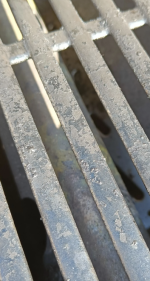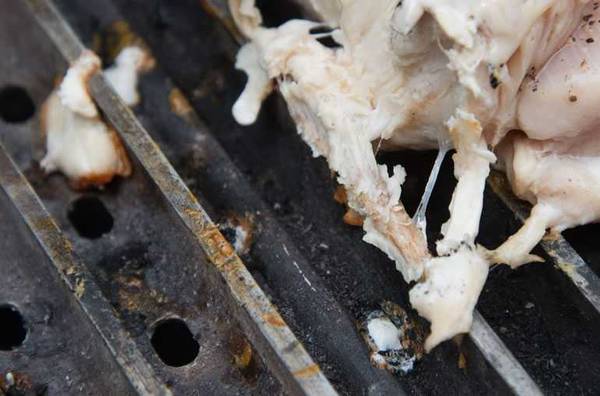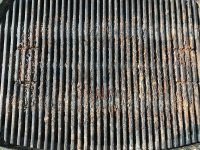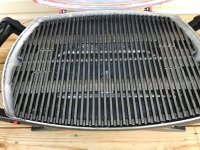Hi Everyone,
New around these parts
I have a Weber E-325S which is just over a year old. It has the porcelain enamelled cast iron grates. It's used often and well loved. I take the standard approach of using a grill brush on the grates while hot before each cook, and a deep clean a few times a year. I use the Weber non-stick spray before throwing the meat on. No sharp metal is used on the grates (I typically use tongs to turn food) so I don't think I've done anything to damage them.
I've noticed the surface is looking in poor shape. Is this surface damage or just very stubborn burned on food? Do I need to try something with chemicals?
Any tips appreciated.
Thanks!

New around these parts
I have a Weber E-325S which is just over a year old. It has the porcelain enamelled cast iron grates. It's used often and well loved. I take the standard approach of using a grill brush on the grates while hot before each cook, and a deep clean a few times a year. I use the Weber non-stick spray before throwing the meat on. No sharp metal is used on the grates (I typically use tongs to turn food) so I don't think I've done anything to damage them.
I've noticed the surface is looking in poor shape. Is this surface damage or just very stubborn burned on food? Do I need to try something with chemicals?
Any tips appreciated.
Thanks!




